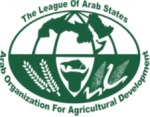Evaluating cereal market (dis)integration in less developed and fragile markets: The case of Sudan
Abay, Kibrom A.; Abdelfattah, Lina Alaaeldin; Breisinger, Clemens; Siddig, Khalid. 2023
Abay, Kibrom A.; Abdelfattah, Lina Alaaeldin; Breisinger, Clemens; Siddig, Khalid. 2023
DOI : 10.1016/j.foodpol.2022.102399
Abstract | View
This paper evaluates spatial market integration in cereal markets in Sudan, focusing on wheat and sorghum, two major cereal crops. Sudan’s context provides important insights on the functioning of markets in economies marred by sanctions, conflicts, soaring inflation, and macroeconomic imbalances. We use long-ranging monthly cereal price data and a vector of error-correction cointegration model (VECM) to characterize both short-term and long-term spatial price adjustment across cereal markets. Among the 15 wheat and 18 sorghum markets considered, we can only detect significant spatial market integration among 6 wheat and 11 sorghum markets. Despite some strong spatial market integration among a few neighboring markets, there is no spatial market integration between several markets, including between major wheat consumption and production hotspots. For example, cereal markets in Darfur are not integrated with cereal markets in the rest of the country, despite exhibiting some level of spatial integration within the Darfur region. Finally, we also observe relatively stronger spatial market integration in sorghum markets than in wheat markets. These findings have important policy implications for improving the efficiency of cereal markets in Sudan and other comparable settings.
The Russia-Ukraine war: Implications for global and regional food security and potential policy responses
Abay, Kibrom A.; Breisinger, Clemens; Glauber, Joseph W.; Kurdi, Sikandra; Laborde Debucquet, David; Siddig, Khalid. 2023
Abay, Kibrom A.; Breisinger, Clemens; Glauber, Joseph W.; Kurdi, Sikandra; Laborde Debucquet, David; Siddig, Khalid. 2023
DOI : 10.1016/j.gfs.2023.100675
Abstract | View
This paper analyzes the implications of the Russian-Ukraine war on global and regional food security. We start with a global vulnerability analysis to identify most vulnerable regions and countries. The Middle East and North Africa (MENA) region is particularly vulnerable to trade shocks because of its high food import dependence. Thus, we provide descriptive evidence characterizing how food systems and policies impact vulnerability to the price shock in selected MENA countries: Egypt, Sudan, and Yemen. Within these countries, we show that the crisis will differentially impact poor and non-poor households as well as rural and urban households. Although the absolute level of food insecurity may still be higher in rural areas where larger numbers of poor households are located, urban poor are likely to suffer most because of the Russia-Ukraine crisis and associated hikes in food prices, especially in those countries where social protection and food subsidies are missing. We review lessons from previous food crises and identify actions needed to take (and to avoid) to protect most vulnerable countries and households in the short-term while also highlighting long-term policy options to diversify food, fertilizer and energy production and trade.
Climate change and agriculture in the Sudan: Impact pathways beyond changes in mean rainfall and temperature
Siddig, Khalid; Stepanyan, Davit; Wiebelt, Manfred; Grethe, Harald; Zhu, Tingju. 2020
Siddig, Khalid; Stepanyan, Davit; Wiebelt, Manfred; Grethe, Harald; Zhu, Tingju. 2020
DOI : 10.1016/j.ecolecon.2019.106566
Long-term optimization of regional power sector development: Potential for cooperation in the Eastern Nile region?
Mondal, Md. Hossain Alam; Ringler, Claudia. 2020
Mondal, Md. Hossain Alam; Ringler, Claudia. 2020
DOI : 10.1016/j.energy.2020.117703
Abstract | View
This paper develops a regional TIMES modelling framework for the electricity sector of the Eastern Nile Basin region, including Egypt, Ethiopia and Sudan, to assess the potential of energy trading for cross-border collaboration in this rapidly growing sector. Four alternative scenarios are developed for the 2014–2050 period to assess national and regional benefits of alternative energy development strategies. The study finds that electricity trading scenarios out-perform a reference scenario that assumes no energy trading, lowering systems cost by 4.5–7.2%. Total systems costs are lower, even when transmission costs for trade are considered. Costs are also lower with increased generation from renewables compared to investments without regional trade. Investing in renewables has important co-benefits, such as improved energy security and reduced greenhouse gas emissions. Supporting energy trade not only reduces systems costs, but can also strengthen cooperation in the region, as reflected in the energy trading efforts of the East African Power Pool and the transboundary collaboration efforts of the Nile Basin Initiative.
Local warming and violent conflict in North and South Sudan
Maystadt, Jean-François; Calderone, Margherita Bernal; You, Liangzhi. 2015
Maystadt, Jean-François; Calderone, Margherita Bernal; You, Liangzhi. 2015
DOI : 10.1093/jeg/lbu033
Food aid, external trade and domestic markets implications for food security in Darfur
Dorosh, Paul A.; Subran, Ludovic. 2011
Dorosh, Paul A.; Subran, Ludovic. 2011
DOI : 10.1177/097492921100300203
The hunger-war link in Sudan
Messer, Ellen; Cohen, Marc J.. Providence, R.I. 1998
Messer, Ellen; Cohen, Marc J.. Providence, R.I. 1998
The impact of livestock and fisheries on food availability and demand in 2020
Delgado, Christopher L.; Crosson, Pierre; Courbois, Claude. 1997
Delgado, Christopher L.; Crosson, Pierre; Courbois, Claude. 1997
The prevention and mitigation of famine: policy lessons from Botswana and Sudan
Teklu, Tesfaye. 1994
Teklu, Tesfaye. 1994
1 to 10 of 12
